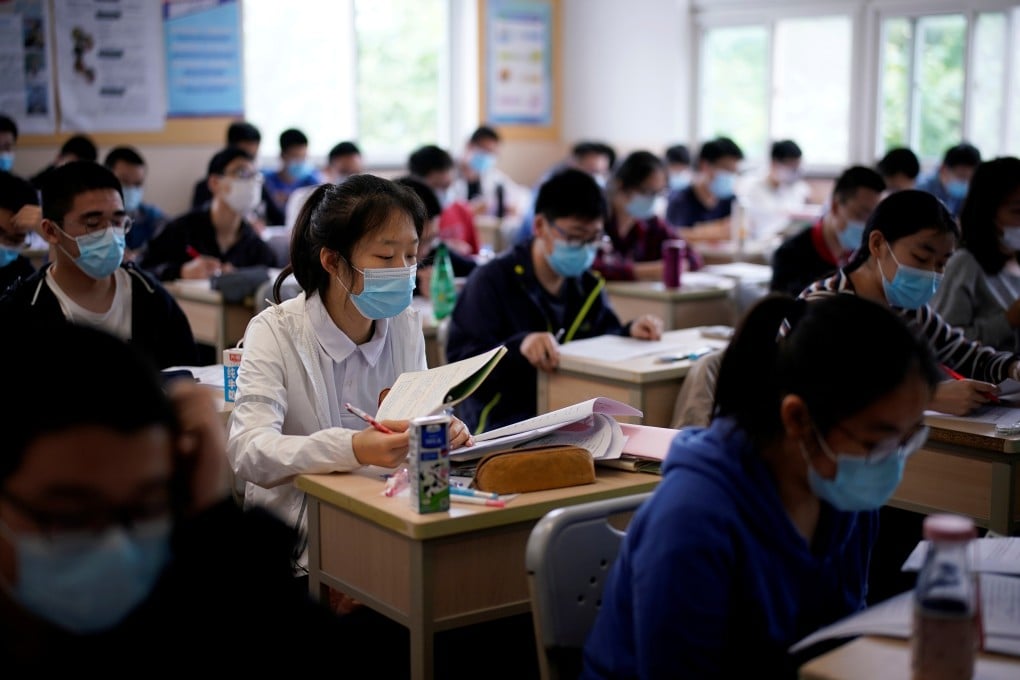Advertisement
Shanghai bans primary school final exams for the subject of English amid education reform drive
- Shanghai similarly banned exams for English classes in 2004, and that decision was widely ignored
- The subject is still extremely important for Shanghai parents and schools
Reading Time:2 minutes
Why you can trust SCMP
52

Mandy Zuoin Shanghai
Pupils in Shanghai will not be taking final English-proficiency exams as Chinese authorities continue to implement sweeping reforms to ease the academic burden placed on students.
Primary school pupils will only take final exams in the subjects of mathematics and Chinese-language aptitude. The exams will be limited for students in grade three (about nine years old) and grade five (about 11 years old), according to a notice released by the city’s education commission last week.
The notice did say that all other subjects, including English, should still be evaluated, just not via a final exam.
Advertisement

The changes come despite English being a highly valued subject and are part of the municipal government’s response to a recent nationwide campaign to reduce the workload for Chinese students.
Advertisement
English is a major part of a Shanghai student’s academic requirements, even though Shanghai officials banned examinations for English in 2004 – a move that was widely ignored.
Advertisement
Select Voice
Select Speed
1.00x